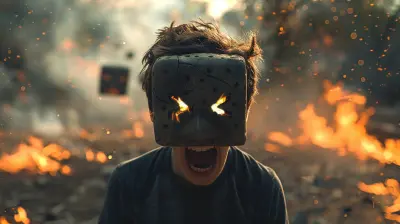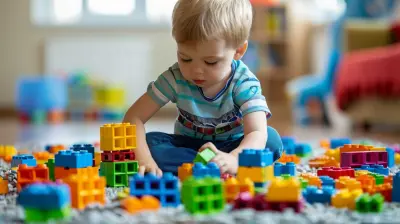How Social Comparison Affects Our Happiness and Well-Being
27 October 2025
Let’s be honest — we’ve all done it. You're scrolling through Instagram or Facebook, and suddenly you feel like your life doesn’t quite measure up. Someone just bought a new house, another friend landed their dream job, and that college buddy seems to be on their fifth vacation this year. It doesn't matter how good your day was — after that scroll session, it feels like you’re missing something. Sound familiar?
This little trap is what psychologists call _social comparison_, and it plays a more significant role in our happiness and overall well-being than most of us realize.
In this article, we're going to dig deep into how social comparison affects us — emotionally, mentally, and even physically. And don’t worry, we’ll also talk about how you can take some control back. After all, happiness isn't about having it all — it's about feeling enough with what you already have.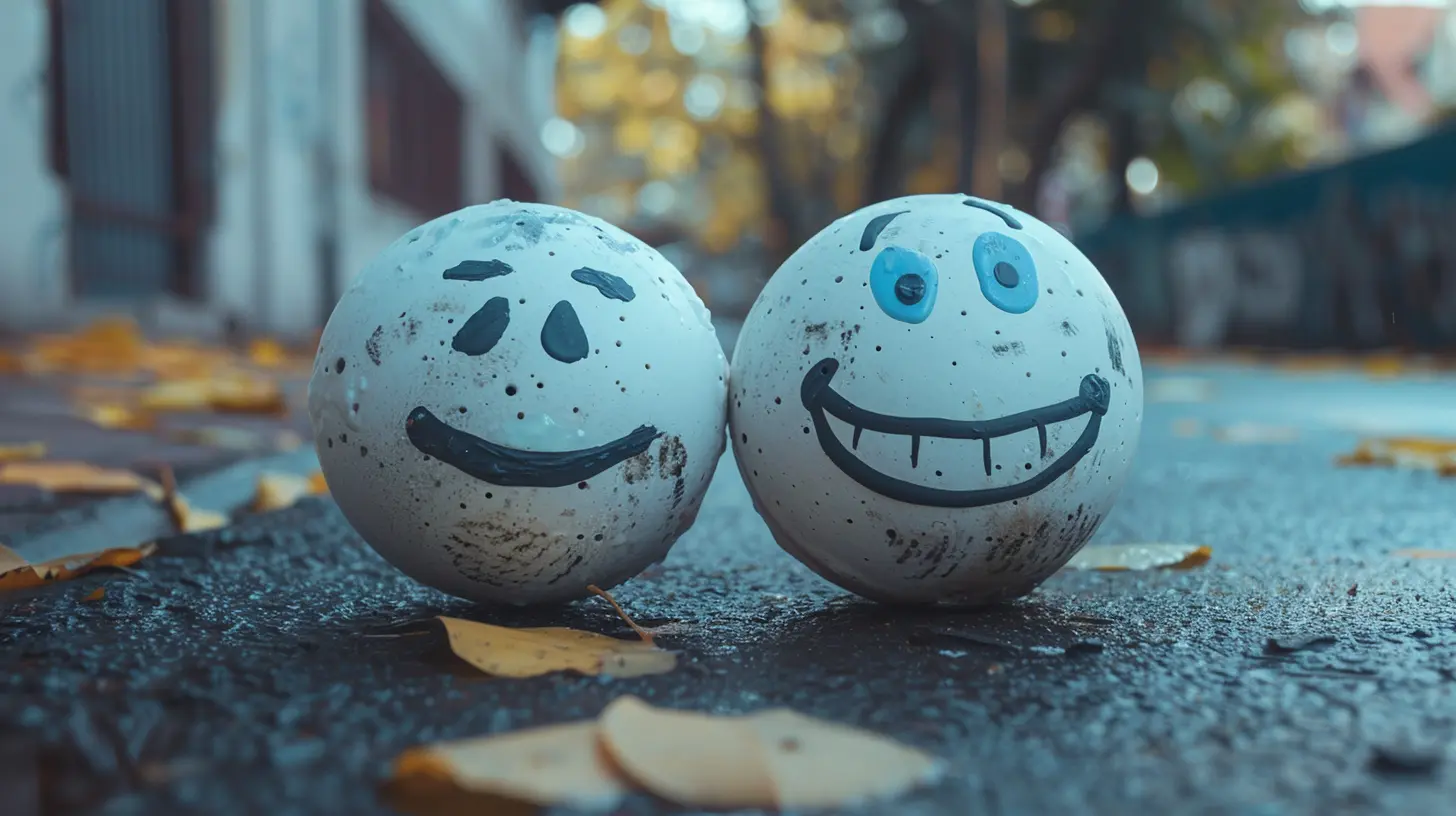
What is Social Comparison Anyway?
Social comparison is exactly what it sounds like — the process of comparing ourselves to others in order to evaluate our own abilities, achievements, and worth. It's something humans naturally do. In fact, psychologist Leon Festinger introduced the theory back in the 1950s.He said we compare ourselves for two main reasons:
1. Self-evaluation – Am I successful? Am I attractive? Am I doing okay?
2. Self-improvement – How can I get better? What can I learn from others?
Seems harmless enough, right? In small doses, it is. But thanks to social media and our hyper-connected world, comparison today is on steroids — and that's when it starts messing with our mental health.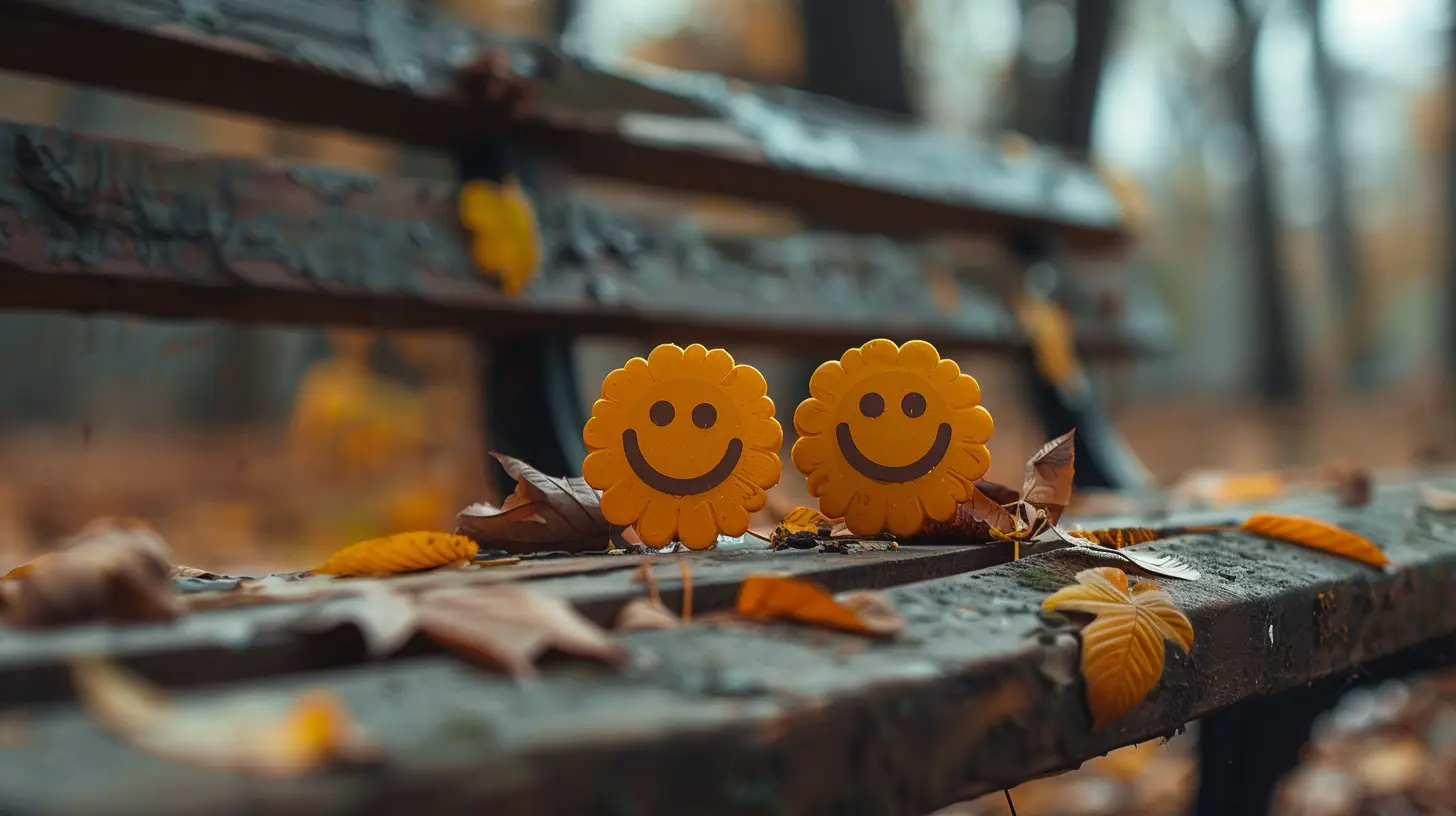
The Two Faces of Comparison: Upward and Downward
Not all comparisons are created equal.- Upward Comparison is when you compare yourself to someone you think is doing better than you.
- Downward Comparison is when you compare yourself to someone you perceive is doing worse.
Upward Comparison: A Double-Edged Sword
Looking up to someone who’s ahead of you _can_ be motivating. If your colleague runs marathons and you want to get fit, their lifestyle might inspire you. But too often, it leads to feeling inadequate. You start thinking, "Why can't I be more like them?" which chips away at your self-esteem over time.It’s like chasing a mirage in the desert — they always seem one step ahead, even if you’re sprinting.
Downward Comparison: A Temporary Ego Boost
On the flip side, comparing yourself to someone who seems worse off can actually give you that short burst of relief. "Well, at least I’m doing better than _them_," you might think. But this kind of thinking is a slippery slope. It can breed arrogance and make us less empathetic. Plus, it only masks insecurity rather than healing it.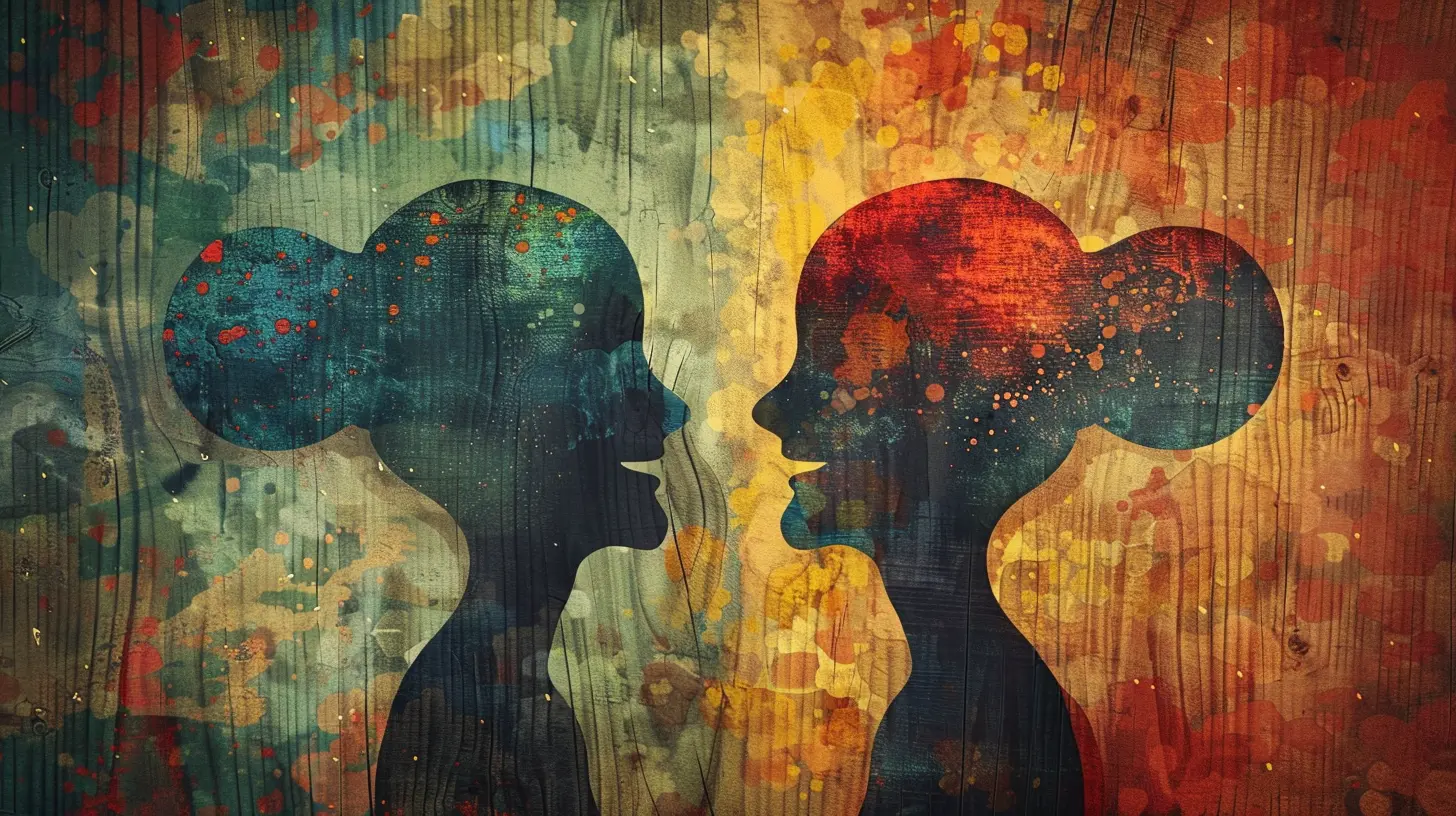
How Social Comparison Creeps into Our Happiness
Okay, here's where things get real. Let’s talk about how all this comparing actually messes with our heads (and hearts).1. ✨ It Warps Our Self-Perception
Ever notice how we rarely compare fairly? We tend to highlight someone else's best while focusing on our own worst. That friend who seems to "have it all" — you don't see their late-night anxiety or struggles behind the scenes.It’s like watching someone else’s highlight reel while judging yourself from the cutting room floor.
When we constantly compare ourselves to curated versions of others, we begin to see ourselves as less-than. That reality distortion? It’s toxic for self-worth.
2. 🧠 It Fuels Anxiety and Depression
Multiple studies have linked frequent social comparison with higher levels of anxiety, depression, and stress. Why? Because we begin to feel like we’re falling behind in this imaginary race.The more you compare, the more it feels like there’s a scoreboard — and you're losing.
You become hyper-aware of what you're lacking, instead of appreciating what you have. That’s a fast track to dissatisfaction, no matter how much you actually achieve.
3. 📱 Social Media Magnifies the Problem
Let’s just say it — social media is the comparison trap kingpin.Think about it: people only post their best moments. You see the engagement ring, but not the fights. The promotion, but not the burnout. The baby announcement, but not the infertility journey.
And even though we _know_ it’s curated, our brain still takes the bait. We measure our behind-the-scenes with someone else's stage performance — and we feel like we're failing.
4. 🏁 It Turns Life into a Competition
Life isn't a race, but comparison makes it feel like one. Suddenly, everything is a competition — who’s more successful, who’s happier, who’s more attractive, who’s _winning_ at life?And the more we compete, the less we connect. Comparison kills joy and it kills compassion — for ourselves and for others.
Why We Compare (And Why It’s Not Totally Your Fault)
Here’s the thing — social comparison isn’t just a habit. It’s actually hardwired into us. Back in the day, it had evolutionary advantages. Comparing ourselves helped us figure out where we stood in the social hierarchy, who we could trust, or how to survive.But in today’s world? Those same instincts are reacting to Instagram likes instead of real survival threats.
We’re living in an era of information overload — and that includes constant access to other people’s lives. So if you feel like you’re comparing a lot, don’t beat yourself up. It’s not a flaw — it’s human. But the good news is we can train our minds to manage it better.
The Dark Side: When Comparison Turns Toxic
When comparison becomes chronic or obsessive, it can show up in some pretty unhealthy ways. Here’s what to watch out for:- Burnout: Trying to "keep up" all the time can be utterly exhausting.
- Low self-esteem: Constantly feeling behind or not good enough chips away at self-worth.
- Jealousy and resentment: You stop celebrating others and start resenting their success.
- Fear of missing out (FOMO): You feel like you’re always on the outside looking in.
- Decision paralysis: You're so focused on others that you lose sight of your own path.
If any of these feel all-too-familiar, it might be time to hit pause on the compare game.
How to Break Free from the Comparison Trap
Here’s the good news: You’re not stuck in this cycle. There are real, practical ways to take your mental space back and start feeling happier, more grounded, and more _you_ again.1. 🚫 Limit Your Social Media Time
We’re not saying delete everything. But give yourself boundaries. Even 30 minutes less per day can make a difference. Try following accounts that uplift you instead of ones that make you feel less-than.Also, don’t be afraid to hit that "unfollow" or "mute" button. Protecting your peace is more important than keeping up appearances.
2. 🧘♀️ Practice Gratitude Daily
Gratitude is like kryptonite for comparison. When you focus on what you _do_ have, the urge to envy what you lack starts to fade.Try this: each morning, jot down three things you’re grateful for — no matter how small. A good cup of coffee, your dog’s goofy grin, or a soft bed at night. It centers your mind on abundance rather than scarcity.
3. ✍️ Define What Success Means to You
Forget what other people are doing. What does _your_ version of success look like? Is it freedom? Stability? Creativity?When you base your goals on someone else’s blueprint, you’ll never feel fulfilled. But if you create your own map, suddenly the noise fades. Your journey becomes about progress — not perfection.
4. 💬 Have Real Conversations
Be honest with your friends. You’ll probably find they don’t have it all together either. Vulnerability breaks down the illusion of "perfect lives" and builds deeper connections.Talk about the messy stuff. That’s where real happiness lives.
5. 😌 Celebrate Progress — Not Perfection
It’s so easy to get fixated on where you’re not. Instead, start celebrating where you _are_.- Didn’t run that marathon but jogged twice this week? Win.
- Still looking for a dream job but updated your resume? Progress.
- Felt sad scrolling through social media but logged off and went for a walk instead? Growth.
You’re doing better than you think.
When Comparison Becomes a Learning Tool
Not all comparison is harmful. When used mindfully, it can even help us grow. Here's how to shift the mindset:- Ask: "What can I learn from this person?"
- Focus on admiration, not envy.
- Use someone’s success as inspiration — not a measuring stick.
Remember, someone else’s win doesn’t mean your loss. There’s enough sunlight for all of us to shine.
Final Thoughts: Happiness is an Inside Job
No one is immune to the comparison trap — not me, not you, not even the people you compare yourself to. But when we start to build awareness around it, everything shifts.True happiness doesn’t come from being the best or having the most. It comes from being _content_, from living in alignment with your values, and from knowing that your worth isn’t measured by someone else’s timeline.
So next time you feel the urge to compare, try this instead: stop, breathe, and remind yourself — you are enough, right here and now.
all images in this post were generated using AI tools
Category:
Social PsychologyAuthor:

Jenna Richardson
Discussion
rate this article
1 comments
Candace McVeigh
This article beautifully captures the struggle we all face. It's a gentle reminder that our worth isn't defined by comparisons—just be your amazing self!
October 28, 2025 at 5:36 PM

Jenna Richardson
Thank you! I'm glad you found the message resonant. Embracing our individuality is key to true happiness.
